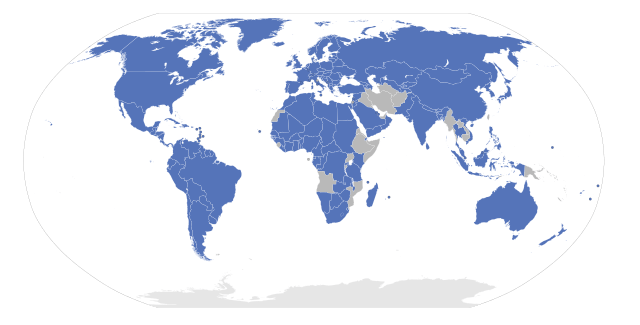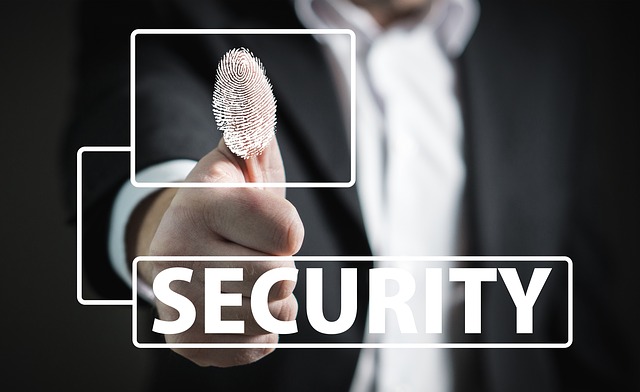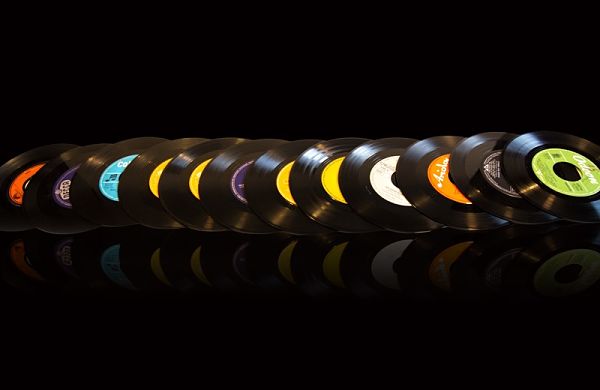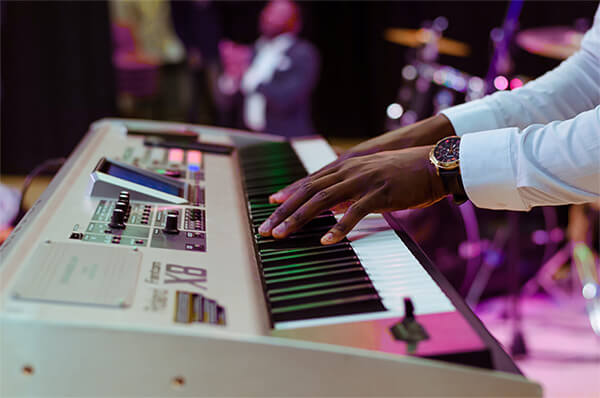How and where to copyright a creative work? This is a doubt that goes through the head of all creative artists. You have just finished creating your song/article/screenplay/graphic art/software/etc. and you feel so proud that you fear that someone may steal your work and claim the rights as if they were theirs.
What do I have to do to register my work? Do I have to go to some intellectual property registry in my community? Is this only valid in my country or is the registration valid for any part of the world? Is it free? Is there a way to do it online?
Don’t worry, I will answer all of these questions and some others so that you can stick to the world of creativity without worrying.
Times change, and depending on what you want to do, it may not be necessary to go to the intellectual property registry in your city in order to register your works. Nowadays everything can be done digitally.
There is no need to even pay.
With the arrival of the Internet and the appearance of different types of licenses which look after all the creator’s needs, you can register all your creative works and assign a license to them in order to grant someone the use rights.
And the best thing is that said digital registration is entirely valid for demonstrating your authorship internationally, or at least in the countries that are part of the Berne Convention (90% of the world).

We are not only talking about creating a record of multiple digital fingerprints that can prove the existence of your works, but also a stamp with the time and date that they were registered.
The best thing is that you can do all this from home, online, in a couple of clicks.
And I know that you need a place to register your works and for this reason I am going to talk about Safe Creative, your intellectual property platform where you can store your creative works ensuring the legal validity thereof.
It’s where I copyright my music and other creations.
Use the following coupon and get a 20% OFF
on your Personal or Business account on Safe Creative!
9RLZJQ
Why should you copyright your creations?
It’s true that the probability of someone plagiarising one of your works in very low.
Although this is the first reason why many think that is necessary to register the intellectual property of a creative work, it’s not the only one, nor is it the most important.
Even if you want to offer your work to the world so that it can be used without restriction (including the non-attribution of authorship, as would be in the case of, for example, the use of a Creative Commons Public Domain license (CC0)), you must register it beforehand.
Why?
If you distribute your work without having registered it beforehand, a bad person (they do exist) can take it and register it in their name before you, and then they grant it any license that prohibits its free use, and even prohibit YOU, the original creator, from using it and distributing it.
This happens if you can’t legally prove that you are the real author.
Many people don’t understand it and even confuse allowing their work to be used freely with the non-registration thereof.
Many think that nowadays, when you publish something on the internet, whatever site it is on, the date is registered with your user profile, and that that is enough proof.
Let’s not get confused.
I have seen how many good talented artists publish their works on platforms without worrying about registering them beforehand, simply wishing to give a confusing image of generosity.
The problem is that many of these platforms wriggle out of legal terms on authorship and the use of the dates of their publications, among other things, as usually happens on forums and some networks (this is not the case for YouTube or SoundCloud).
Do not rely on platforms that are not focused on guaranteeing the registration of intellectual property. Your username is not your real name nor does it identify you as a real person. Your profile may even be deleted, just like your work may be deleted and its publication date.
A digital record which is legally valid is made up of at least 3 forms of proof: deposit of the work, record of the digital fingerprints, and time stamping.
Many people put their works on forums before registering them first and allow them to be used freely saying that it is not necessary for them to be given credit, that they did it as it is their hobby, without thinking that later they might discover that their work has been deleted from the network and that authorship has been attributed to another person. And all legally.
I don’t think that giving away your artistic works to thieves is a fun hobby.
Registering a work does not mean prohibiting anyone from using it, this depends on the type of license you have for it. And it wouldn’t stop being a hobby.
I, for example, register all my songs, even my royalty-free music, before publishing them or letting a possible private client hear them.
Anyway, this is just one of the reasons why you should register the copyright of your work.
Another reason is that the registry allows access to the information of the work and its possible license to facilitate anyone who is interested in using it.
Where can I copyright my music or my artistic work?

Let’s say that you want to copyright a song. There are many platforms where you can publish your music, your digital art, your programming code or your literary work, where a user license is automatically granted and, therefore, a record.
But these platforms do not specifically focus on the legal guarantee of your intellectual property.
That’s why I recommend Safe Creative, an online platform dedicated exclusively to guaranteeing your authorship and facilitating the management of any registration you want to carry out for your creative works. Here is where you can copyright a song or any artistic work.
Safe Creative is based on the standards of the Berne Convention so that the registration of all your creative works is totally legal and legally valid practically everywhere in the world.
What do you have to do?
You simply create a free account. Like almost all platforms, there are different types of accounts with their respective fees. The Without Subscription account is free; the Personal account and the Business account have a fee and therefore, obviously, offer better services.
The Without Subscription account is enough if you are going to attribute Creative Commons Licenses to all your works, and if you aren’t going to register more than 20 works.
If you want to give them a “non-license” and reserve all the rights (Copyright), then in the future you will need a paid license.
I have had a Personal account for a few years and the service has been impeccable. Whenever I have contacted them to ask questions about copyright or the field of intellectual property they have answered me correctly and quickly.
Even, to my surprise, once they called me on the phone to solve some legal questions that I had asked them by email.
And most importantly: it has helped me more than once to remove from all the Internet a case of plagiarism of several of my songs, and quickly. Safe Creative’s own team interviewed me to publicize my case, since they worried about helping me.
On this platform and choosing the account that suits your needs, the intellectual property of your creative works will be covered in the same way that my music for video games is covered.
When creating your account, go to your profile and add your personal data, make sure the information is real to facilitate the guarantee that your records are yours and not someone who does not exist.
As you already know, choose Safe Creative and protect your creativity.
It seems like I’m trying to sell it to you.
Use the following coupon and get a 20% OFF
on your Personal or Business account on Safe Creative!
9RLZJQ
I have created a video game; how do I register it?
As always, first the events take place and then the laws are created.
And the event in this case is that the video game industry has grown enormously and rapidly in recent years. Therefore, we are ahead of intellectual property legislation.
The question is: Can I register a video game today?
The video game itself cannot be registered. What you can do is register all its different parts separately.
Currently, video games are considered as “collective works” in accordance with Royal Decree 1/1996, of 12 of April, Consolidated Text of the Law on Intellectual Property.
Therefore, if you have created your own video game, you should register all its artistic parts separately.
When it comes to games created by a large corporation or company, the variety of professionals working on development is very broad. There are producers, scriptwriters, programmers, designers, animators, sound engineers, publicists… and a brand. Everything will be registered under this brand.
In the case of an indie video game in which the developers are usually a small group of workers (or even in some cases a single person), things will not be very different from the above.
The software or the programming code that will be responsible for running the game must be registered. The IPL (Intellectual Property Law) considers software as a literary work, so you can register it in the same way as the screenplay of the game (and the shooting script if there is one).
If in your case you have used a third-party software (as in 99% of the cases of independent games), you will only have to have a license that allows you to use it.
Obviously, you should also register the audiovisual elements, such as the graphic section (character designs, stages, maps, interface, etc.) and the sound.

The soundtrack (music and other sound effects) are usually works transferred under a license, as in the case of the software or video game engine. If they are not royalty-free works, you will only need a copy of the assignment of copyright contract.
In my case, as a composer of music for video games, when working on an order I always transfer the rights of use of my works through a contract so you do not have to worry about this.
You can carry out all these separate registrations easily at Safe Creative, as it is optimized to facilitate these tasks.
Therefore, you can have your video registered game on a platform that gives you legal security.
Hopefully, with time, a law will be passed that regulates the concept of the video game and protects it as a whole.
And what do you have to say? Has this recommendation been useful to you for registering your creative works? Leave a comment and tell me about what you have created.
And if you are a video game developer or you are interested in music as an element of a multimedia project, subscribe to my newsletter and join my musical world!


